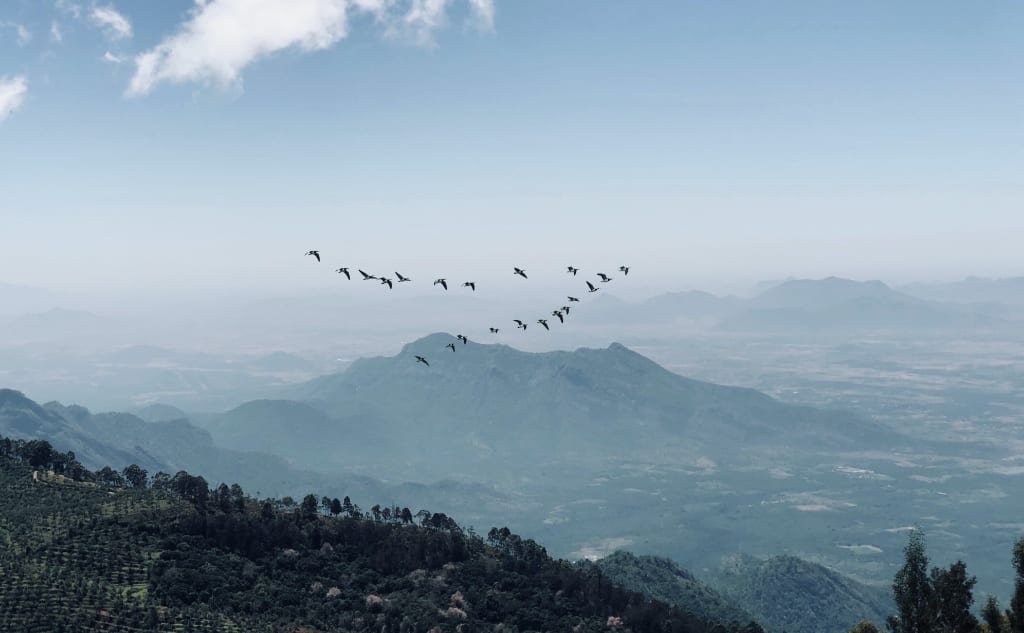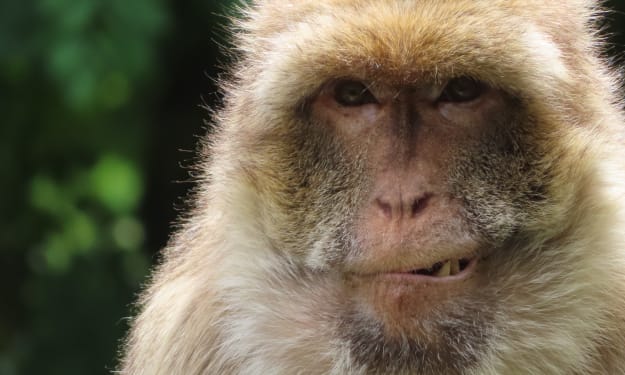Birds Of A Feather Die On A Hill Together
In a world more connected than ever before, our tribal tendencies are making us more and more divided

Birds of a feather flock together: It means people with similar backgrounds, characteristics, or interests, tend to associate with one another.
As humans we find comfort in community, known as homophily, and it is a tendency we all have to form groups in which relationship building and communication become easier.
Traditionally (by which I mean, early in the history of humanity) this resulted in physical tribes: small collections of people who spoke the same language, believed in the same things, lived the same way, looked alike, and so on. One tribe looking at another would consider them not just strange and ‘other’, but also challenging the very basis of their own identity. The other tribe would be competing with them for resources, challenging their beliefs by simply existing and worshipping other deities, and, perhaps most worryingly, they would offer an alternative for any member of their own tribe who felt shunned or ostracised.
And so it is only natural that one tribes’ reaction to another would be to reject them— to reinforce and strengthen their own tribe, they had to remove anything that stood against it.
Thousands of years later, in a world more connected than ever, we are still doing the same thing. Old habits certainly do die hard.
Now, I’m not talking about national ‘tribes’ here, and the wider topic of xenophobia, or even jingoistic beliefs, but the tribal non-physical groups we each find ourselves parts of within our own societies: domestic political allegiance, which sports team we support, which brands we identify with, which celebrities we like/don’t like, what our opinion is of some event or thing, and so on.
Each of these tend to have their own little tribes devoted to the suppression of all others who stand as the ‘other’.
This is what I term as the hills we each choose to die on: we choose a side and fight it to the bitter end.
Think of the algorithm of Facebook, for example, and its tendency to continue showing you what it believes you enjoy, and thus, communicate with other like minded individuals. These homophilic atmospheres promoted by social media create nothing but echo chambers atop the hills we have chosen to live and die on.
So what happens, when something or someone from outside penetrates our echo chamber, or intrudes on our hill, or perhaps just stumbles up not knowing any better? The sort of negativity, hatred, anger and extreme reaction we see nowadays in the world of politics, sport, tradition, and anything else you can think of.
Another person sharing a differing political opinion to you can result in such ferocious reaction that our tribal ancestors would feel when an outsider encroached: fear, becoming defensive, protective — an effect of tribalism in place that reinforces these beliefs, stops those who hold them from wavering, and thus, leaving the tribe.
In all of this, it is our desire to feel connected and together, to form some sort of collected identity and sense of belonging, that forces us to hate our fellow man in the context of entirely trivial matters like which wrestling promotion is your favourite and whether you prefer Marvel or DC.
But my question, in writing this, is why do we have to pick a hill to die on at all? Why can’t we move between hills, settling somewhere in the valleys in between and coming and going as we please without the fear of being pelted by rocks from both sides?
Panathinaikos fans burn “spoils” gained from fans of Olympiacos. Their football derby is known as Derby of the eternal enemies and regularly leads to violence — By George Mirgiannis — Own work, CC BY-SA 4.0
So what is to be done?
The tribalism of these groups, of course, would never allow this. The nomadic nature itself is one that people feel challenging.
In an argument between a group of left wing and right wing politicians, for example, any individual sitting in the middle on certain matters is ‘on the fence’ — essentially suggesting the person is indecisive and cowardly. A politician moving between groups is seen even worse, as a ‘turncoat’ — someone who cannot be trusted, who has betrayed or deserted their initial group and has bending morals.
Individuals and wider society and has been constructed to find strength, reassurance, safety and identity in numbers. We are not solitary creatures, and have evolved to co-exist in groups and similarly minded communities.
Long gone are the days of small, tight knit tribes of a few dozen. In today’s world of social media, the internet, and relatively cheap travel (global pandemics aside), leading to communication with people entirely different from us, we are all finding two things: 1) our tribes are now larger than ever before, and are larger than a functioning society can handle, and 2) the identities we have formed within those tribes are being challenged constantly, by people all over the world, some of whom do not mean to challenge it.
The constant challenging of our beliefs and identity simply strengthens the tribe in its aim to defend itself, thus leading to the shouting matches online over the least bit thing. We’ve all seen them, and what is more, we have all participated in them, myself included.
And as embarrassing and shameful as it is to look on sometimes, it perhaps comes with some assurance that this is an entirely natural, human way of thinking and bonding with others.
But the problem is these tribes do not, in many cases, actually exist. You shut the computer down, and you are not protected or surrounded by those in your Facebook group, nor does the world around you mirror the views and images presented by your tailored Twitter feed.
Often, the people you choose to identify with and form a tribe with online are people you do not know in real life, and if you met them in real life, you would realise you have nothing in common beyond the one or two core issues in which you have bonded and formed a collective.
You are not birds of a feather, and therefore don’t have to flock together.
You do not have to die on any hill.
While literal human tribes developed these characteristics of identity and community, they were doing so in an environment in which they may be warring between them and other tribes — literal warring, fighting over resources, land, superiority, strengthening their own tribe and therefore ensuring their own survival if they win.
But while interests and opinions are perfectly natural, as our own inclination to side with others we share anything in common with, we are beyond the point of forming tribes. These ‘digital tribes’ online are not for survival.
The tribalism in our football stands does not determine whether we, or our team, lives or dies, or even whether they/we succeed or not.
Somewhere along the way, these intrinsic human values of community have become muddled. Rather than creating a world-tribe, one which (as fanciful and naive as it probably sounds) brings us all together to share our collective human experience, instead we are just battling with more and more people over more and more things.
These things aren’t a matter of survival, so you don’t have to die atop any hill. Leave your echo chamber once in a while, come down in to the valley between hills, and just relax.
I promise, it isn’t as scary as it sounds.
About the Creator
R P Gibson
British writer of history, humour and occasional other stuff. I'll never use a semi-colon and you can't make me. More here - https://linktr.ee/rpgibson






Comments
There are no comments for this story
Be the first to respond and start the conversation.